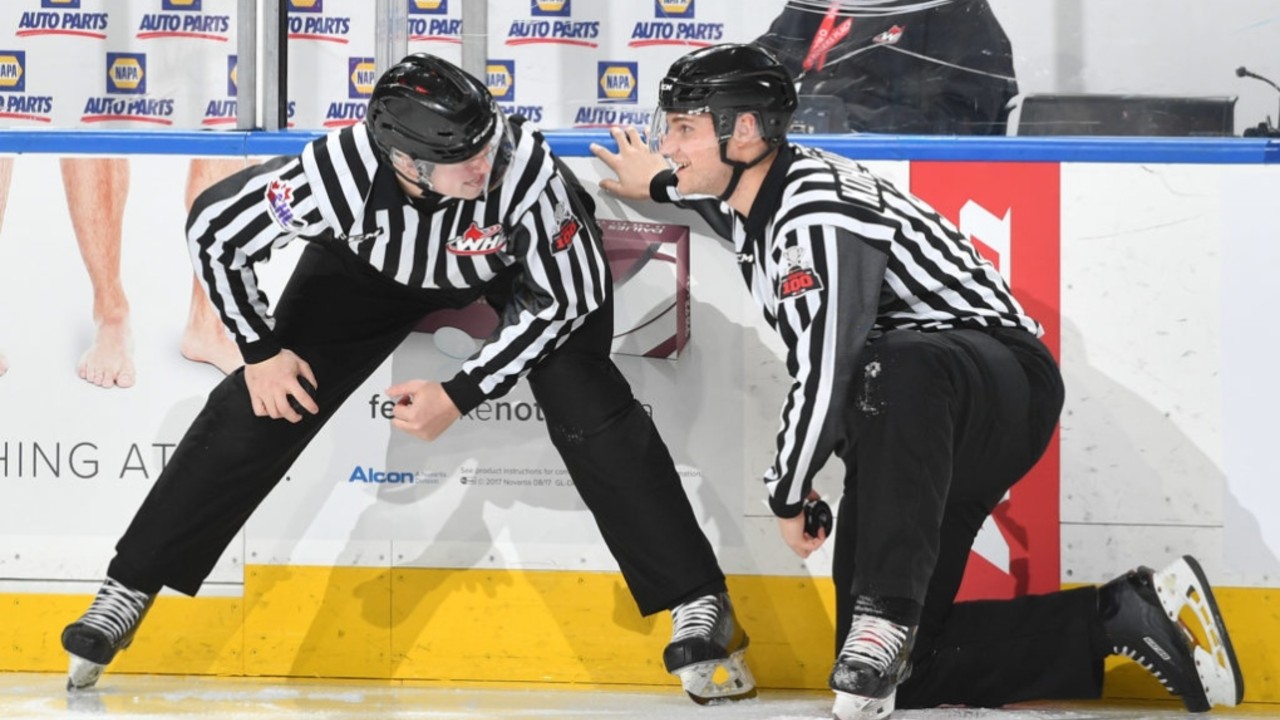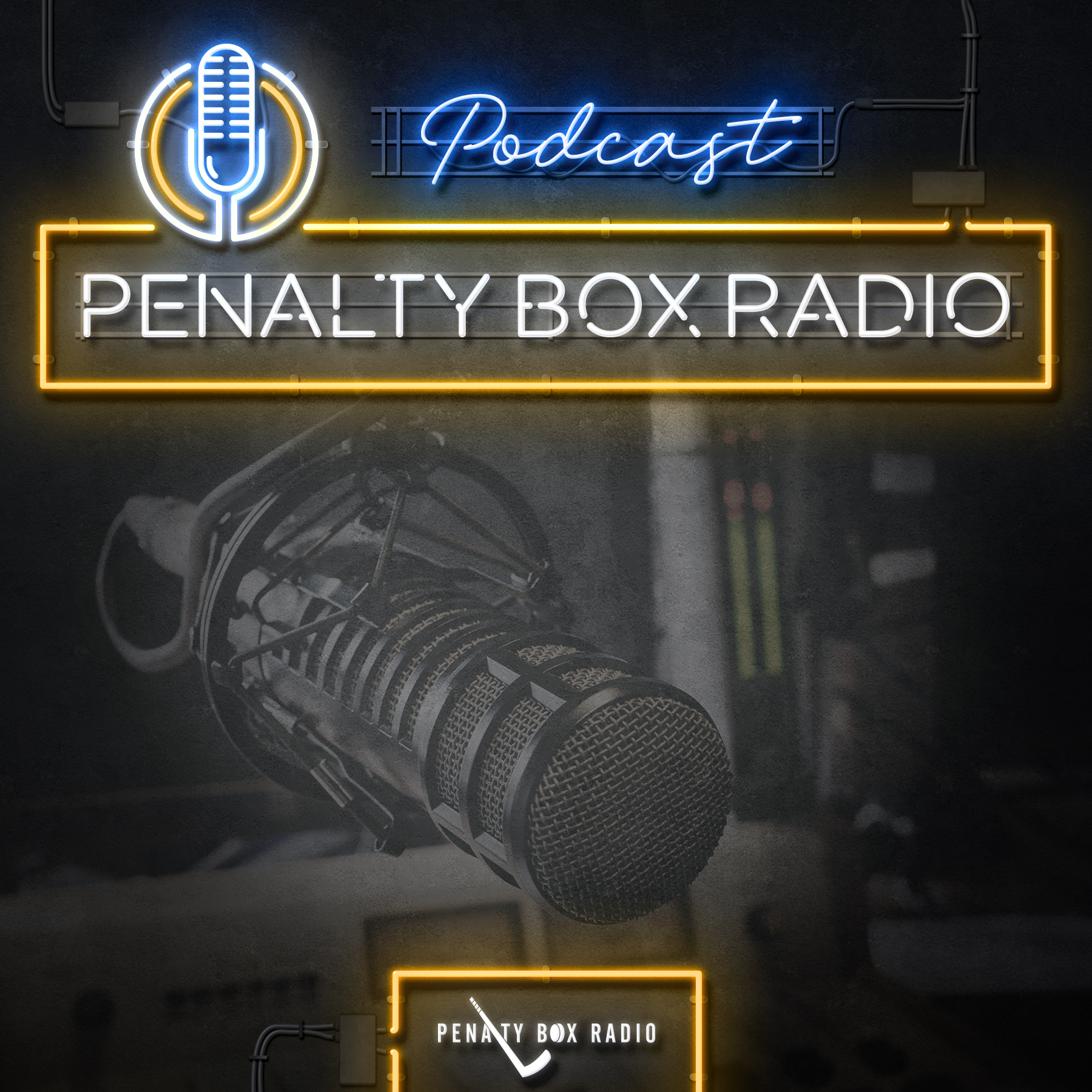Each time they take the ice, they are the most criticized people out there. Bad call! Are you blind? Pay attention! C’mon! You’ve got to be kidding me! Coaches, players and fans alike can all find something they are unhappy about at the end of each and every hockey game. The men and women in zebra sweaters are often public enemy number one in hockey. One side often heads to the dressing room or to their cars thinking the result of the game was due to the calls and decisions made by the officials.
Hockey officials have been accused of being biased since the beginning of the game. One team always has to lose the game, and blame can be easily placed in the hands of the people who control how the game plays out. As it has been said, one call can change a game.
The tournament has yet to begin, but the International Ice Hockey Federation’s (IIHF) World Junior Championship (WJC) is already hearing from critics about its referee choices for this year’s tournament.
On November 25th, the IIHF announced that all 26 officials, 14 referees and 12 linesmen, will be from Canada. This decision was made due to the travel restrictions in place as a result of the COVID-19 pandemic. All 10 participating countries approved this decision made by the IIHF.
“Every additional person we bring into the bubble is a risk, so we decided to source the officials locally in order to reduce the risk to traveling personnel and teams,” said Danny Kurmann, the IIHF officiating manager, in a statement.
Under normal circumstances, the officials would represent multiple different countries. In this scenario, an official from either of the countries playing in the game would not be on the ice. For instance, a Canadian official would not officiate a team Canada game.
Immediately, criticism was voiced about the decision. Those who are fans of the United States, Russia, Sweden and anywhere but Canada said this decision will lead to Canada raising the trophy, and no other country will stand a chance. Some in Canada said the referees will be too hard on Canada to prove they are not favouring their home nation and as a result, Canada will leave the tournament bubble without the gold medal. Personally, I don’t buy into either of these theories.
Corey Koop has been an official for 16 years. He is currently a referee for the Western Hockey League and British Columbia’s junior A leagues. Koop is working on achieving his certification to officiate internationally. He hears the criticisms and is sure the WJC officials hear it too.
“It’s a part of the mental challenge,” Koop said. “The officials aren’t living under a rock. They’re aware of what’s going on in the media. It is added pressure but that’s why these guys are being chosen for this tournament. They can handle the pressures at that elite level.”
John Reid has been a referee for over 50 years. He currently serves as referee-in-chief for Hockey Eastern Ontario. He manages over 13,000 referees, their conduct, and on-ice activities. When the WJC was hosted in Ottawa in 2009, Reid helped manage the officials for the tournament that year.
“Canadian officials really, truly are unbiased,” said Reid. “This year, if Canada makes the finals, they’ll be refereed by Canadians, but I don’t believe it’s an issue. I just don’t see it.”
Throughout his career, Koop has worked with and gotten to know many of the officials who are traveling to Edmonton to officiate the WJC.
“They’re good quality, character people, not just good officials, they’re good people. That alone will prevent them from having bias in the game,” Koop said.
All of the referees at this year’s tournament have gone through extensive Hockey Canada training to get them to this level. Koop says this training emphasizes “serving the game.” Officials strive to make sure every game is clean, fair and safe. This style of officiating is instilled in officials from a young age. Kids can begin training to certify as a Level I official within Hockey Canada as young as 12 years old in some provinces.
Nick (whose last name we’ve protected for privacy matters), an American Hockey League, WHL, and IIHF linesmen, is not concerned about the WJC officiating and echoes the sentiments of Koop about the chosen officials’ character.
“At the end of the day, the colour of the jersey doesn’t matter,” Nick said. “You train all year refereeing other teams and you call what you see whether it’s Canada playing or someone else.”
In 2014, former NHL referee, Kerry Fraser wrote in his TSN column, “C’mon Ref,” that NHL referees hold a bias against certain players. Fraser cited the referees’ “Ten Most Wanted” list as the players they watch the closest. He said that diving or embellishment can help a player climb to the top of the list.
This specific column was written in response to a diving call on Brendan Gallagher of the Montreal Canadiens. Fraser said it’s not shocking referee Dan O’Rourke made this call. According to Fraser, Gallagher is high up on referees “Most Wanted” list and O’Rourke was “dialed in” on Gallagher to be sure to make a call.
Koop says that referees often meet to discuss players who may have a track record. This allows officials to be more aware of that player when they’re on the ice. An official will always have their eye on that player to make sure they don’t try anything when they think a referee isn’t looking.
“We check stats to see who may want to fight or if any two players have a hate between them,” Nick said. “It’s not for penalties though. It’s about awareness.”
Officials may track the statistics of the players and teams they are officiating, and players can return the favour. The website scoutingtherefs.com allows fans, coaches and players to see how a particular official may influence their team. The website tracks the statistics, including home team games won and penalties called, of officials across different leagues. For example, an average of 49 per cent of penalties per game called by referee, Kelly Sutherland, were on the home team last season. This shows Sutherland is a fair referee as the average per cent of penalties between home and away teams are almost even. Coaches and players may be less worried about the effect Sutherland could have on the game than other referees.
Nick thinks coaches, players, and fans all look for someone to blame the result of a losing game on. Often the onus falls on the officials. Despite this, referees are trained to call what they see and focus on the game. They don’t care who wins.
“Reputation means everything to referees. They’re not going to ruin their reputation so one team or country can win,” Nick said. “It’s not worth it.”
Koop began his own referee camp, Koop’s Call Officiating Camps, last year to help young officials handle the verbal abuse thrown at them because of their job.
“Officiating is a pretty thankless job,” Koop said. “Officials can bear the brunt of some high intensity emotions. It’s intimidating when you’ve got an adult coach screaming at you.”
By equipping these young officials with the tools to handle this weight, Koop is helping them to not give into pressure or unintentional bias to avoid the abuse.
“You know you’ve officiated a good game if no one says anything to you after,” said Reid. “Coaches and players always want to tell you which call you missed or went the wrong way, but if there’s silence, you know you’ve done alright.”
We all have a vested interest in watching our favourite team or country play, but understanding the training a referee must complete before taking the ice, it seems that they are the one group who doesn’t. Although it’s easy to say there will be no bias, we won’t know for sure until the first puck is dropped. Maybe, the referees are the ones to watch this year.
Related: Will an All-Canadian Officiating Crew Affect the Outcome of the World Junior Championship?






